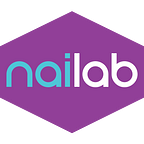Tell us about yourself?
I was born and raised in Mtwapa in Kilifi County. I went to Oceanic Green Fields Primary school and then proceeded to Sheikh Khalifa secondary school. Currently, I am in my final year at the Technical University of Mombasa pursuing a degree in Bachelor of Science in Information Technology. I am the ninth born in a family of 10 children. I enjoy reading and giving back to my community.
What’s the inspiration behind Flexi-Port biogas?
If you come to Mombasa, you will realise that the thing that stands out is waste, most of which is organic. There is also minimal waste recycling in the county. I started researching to find a way to recycle all this organic waste and turn it into energy. After my research and based on the findings I decided to try it out.
Tell us what your Innovation is all about?
60% of the waste generated in Mombasa is organic, if we could put this waste to good use in our homes it will not only save us the cost of electricity but also it will help keep our environment clean. My idea is to introduce biogas production to our households by developing portable digesters that can be installed at homes and that is where the name comes from (Flexi-port biogas). The digester’s work is to breakdown organic waste in the household and produce biogas that can be used for cooking. We are yet to move on to other energy conversions.
How did you raise the initial capital to fund your idea?
I heard about a program called Leap2 by Nailab from a friend of mine. She had gone through the program before and managed to raise money through crowdfunding. I applied for the program with my idea and I got in.
How would you describe your crowdfunding experience?
I had never heard of crowdfunding before joining the Leap2 program but lucky for us, we were taken through a 3-day crowdfunding training by Nailab before we began. During these classes, I remember thinking to myself that I will not be able to do this. Who would I even ask to contribute towards my idea? After the training, I approached my parents and told them about my idea and to my surprise they were very supportive, they called all their friends who were very gracious to contribute towards my idea. I also met so many people and made great connections during my crowdfunding, these are people who I approached and told them about my idea.
What are the greatest lessons you learned from your crowdfunding experience?
The biggest is accountability. A lot of people who gave their money to support my cause still reach out to me to inquire about the progress that I am making. This keeps me on my toes every day to give this project my very best. It also gives me the push to continue with the project even when I want to give up because I know people are counting on me.
You have mentioned that you conduct a lot of research, how do you normally conduct your research?
We have reached out to key companies that could be potential partners to help with production just to get their feedback. We also conduct one on one interviews with families in Mombasa to get their feedback on whether this is something that they would be open to having in their homes. Currently, we have three organisations that are willing to partner with us during our piloting phase.
